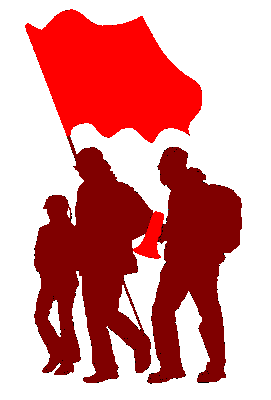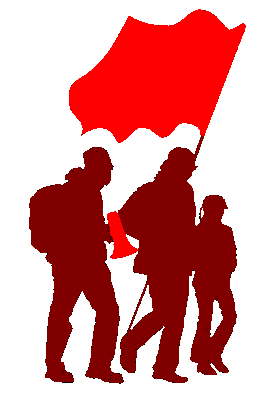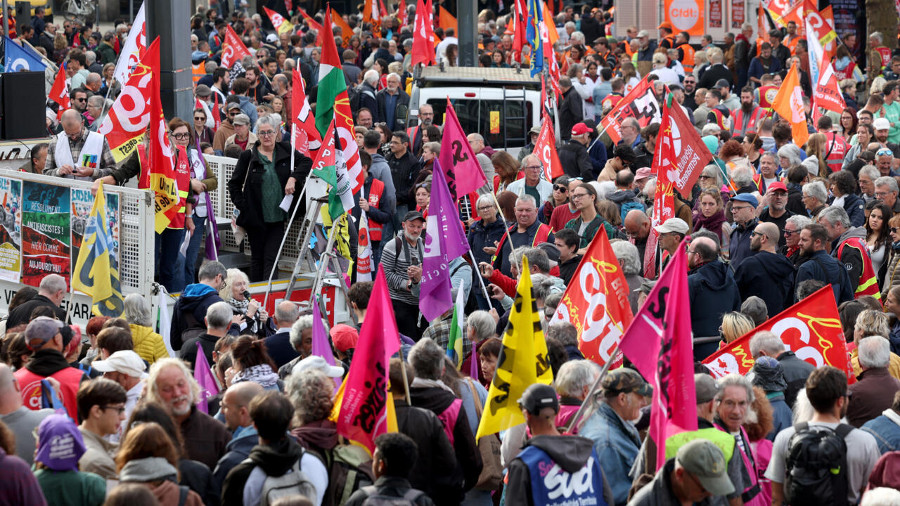|
The French Left: Social Initiative in Political Stagnation But despite all their energetic activity, the French left is, in reality, unable to significantly turn the situation in its favor. Early parliamentary elections in the coming months may not even take place: the presidential camp does not want them, as their results would likely further weaken pro-government forces. However, municipal elections will definitely be held in the French Republic in 2026. Currently, the left and the Ecologists hold a fairly strong position at this level; three of France's largest cities—Paris, Marseille, and Lyon—are governed by left-wing mayors. However, it's far from certain that the local elections will bring gains to the French left; retreats to the right are also possible. Part of the reason is that the unitary dynamics of the left-wing coalition formed on the eve of the 2024 snap parliamentary elections—the NPF (New Popular Front)—has clearly stalled, as had happened earlier with the New Popular Social and Ecological Union (NUPES). The fact is that the leading forces within the NPF have their own party-political calculations. And their own hopes for the 2027 presidential campaign, which, in fact, is just around the corner. Yes, there are some common themes that unite the forces represented in the NNF (and their political spectrum is quite broad – from Trotskyists and neo-Stalinists to social liberals). These include, in particular, opposition to the center-right government, rejection of "austerity" budget measures, frontal confrontation with the far-right NO and its allies, advocacy for the rights of socially vulnerable groups, and opposition to measures to restrict legal immigration. Admittedly, this is no small feat, but the existence of centrifugal tendencies within the NNF is a reality today. I would highlight three main approaches here. One comes from the FN movement and its de facto leader, Jean-Luc Mélenchon. It represents a clear line of confrontation with the institutions of the Fifth Republic and their bearers. Here, it's appropriate to cite a pithy quote from Mélenchon himself, following the resignation of François Bayrou: "The Bayrou government has fallen. Now Macron must go." It was the FN deputies who initiated the attempt to remove Emmanuel Macron from the presidency, although it is clear that the chances of such an "operation" in the French parliament are practically nonexistent. Jean-Luc Mélenchon and his comrades are betting on early presidential and parliamentary elections, hoping that their holding will coincide with a new social wave. But these calculations are unlikely to be justified. Interestingly, political opponents from the FN are also currently advocating for early general elections in France. And, frankly, even despite the disqualification of longtime NO leader Marine Le Pen, the far right's chances still look stronger than those of the FN. The FN, while constantly emphasizing its commitment to the unity of the left and the FN project (which was personally initiated by Mélenchon), regularly rejects the idea of a joint "left primaries" in which FN member parties could nominate a single candidate. Meanwhile, on the other, moderate side of the FNF, the Socialist Party (SP), once the most influential French left-wing party, stands out. At this year's party congress, Olivier Faure, a supporter of leftist unity and a staunch opponent of the current government, was re-elected to his post, but by a very narrow margin. Within the SP, a strong right-wing social democratic opposition remains, receptive to Emmanuel Macron's idea of a "central government" that could potentially include ministers from the center-left to the Republican Party. Despite a noticeable decline in their actual popularity among the public, the Socialists remain the most influential force on the left in the Republic at the municipal, departmental, and regional levels. Unlike the FNF, the SP opposes a frontal confrontation with Macronism and is not strongly inclined toward early elections. As SP senator David Assouline notes, "our opposition must be constructive and realistic." By initiating F. Bayrou's resignation, the Socialist Party establishment hoped that President Macron would propose the formation of a new Council of Ministers to a center-left politician. This, however, did not happen. The FN and the radical left in general accuse the SP leadership of being inclined to compromise with liberal politicians. Finally, the third pole within the PFN is currently linked, in part, to the French Communist Party (PCF) and the Ecologists party. These political forces advocate for the comprehensive strengthening of the PFN through the development of its local branches and closer ties with the world of labor and the social movement. The PCF and especially the Greens believe that the situations of 2017 and 2022, when a left-wing candidate failed to make it to the second round of the presidential elections, should not be repeated. Accordingly, this view, which enjoys the support of the majority of non-partisan supporters of the popular front, calls for the mandatory holding of collective primaries for the left movement before the 2027 presidential campaign. At the same time, the most realistic left-wing candidates, according to polls, today – Jean-Luc Mélenchon and the social-liberal European Member of Parliament, leader of the Public Place party, Raphaël Glucksmann – show no sign of wanting to hold such a "left-wing primary." However, there is no doubt that if the leading left-wing parties, as happened in 2017 and 2022, fail to agree on a single candidate again, the French left could once again find itself without a chance of making it to the second round of the presidential election. Unfortunately, the NNF, created at the top "for the campaign" for the lower house elections, has so far failed to develop its positive unitary momentum, even though both radical and moderate leftists are indeed active in domestic politics and participate in the social and trade union movements. However, it seems that the leading left parties essentially lack a unified tactic. Given the constant rise of the far-right, this state of affairs is fraught with very serious problems in the future. https://rabkor.ru/columns/editorial-columns/2025/09/29/france-social-initiative-in-the-face-of-political-stagnation/ Back Key Words Fance Macron François Bayrou Jean-Luc Mélenchon General Strike New Popular Front |
|
||||||
|
|||||||




